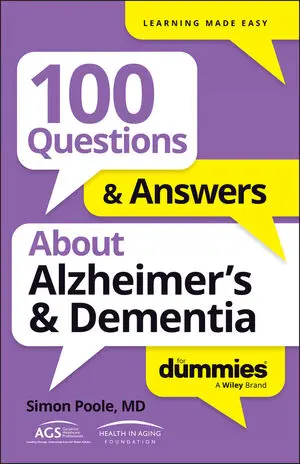- Difficulty speaking or comprehending information
- Confusion
- Disorientation (for example, confusing the days of the week or problems estimating or telling time)
- Problems recognizing or identifying objects
- Difficulty with finding words
- Problems with motor skills
- Personality changes (such as sudden irritability)
- Agitation (such as restlessness, pacing, unprovoked verbal or physical aggression)
- Problems recognizing similarities or differences between ideas and concepts
- Problems planning, reasoning, judging, and other kinds of higher-level thinking
- Any significant change in day-to-day functioning that contradicts your loved one's normal conduct
One of the biggest problems healthcare professionals face when diagnosing dementia is that other conditions mimic many of its most common symptoms. That's why it's important for you to present the big picture to your doctor; looking at a patient's entire range of emotional and behavioral difficulties along with problems in their cognitive skills helps doctors make a better diagnosis. Any bit of information that you don't include in your comments to your loved one's doctor may be the missing key that prevents an accurate diagnosis or a diagnosis at all.
For example, if you forget to mention that your loved one has a low thyroid condition but refuses to take the prescribed thyroid supplement medication, or if you don't know whether she's taking it, then your doctor may believe that some of the symptoms caused by the thyroid condition are an early manifestation of AD. Such medical history is essential to assist the doctor in making a proper assessment of a potentially reversible and treatable problem that may mimic dementia. That's why it's so important to maintain complete healthcare records and to make sure you share all the information you have with your doctor, even if it doesn't seem important.
Giving the doctor an accurate list of all medications (both prescription and over-the-counter) as well as all vitamins and herbal supplements that your loved one is taking is critical. Explaining to the doctor exactly how your loved one uses these medications (especially if different from how they were prescribed) is also important, which may range from non-use to underuse or overuse compared to the instructions on the bottle. This is one time that the truth of what is really being done becomes paramount to communicate to the doctor. Such honesty can prevent incorrect medical decisions by letting the doctor know what is really happening.
You may be thinking that seems like an awful lot of work, and you'd be right. Some concentrated effort is required to gather all the information your doctor may need to make an accurate diagnosis of your loved one's condition. Write things down as you notice them. The most important thing is to record events as they happen, noting the time of day and whatever incident may have preceded the behavior you're noting. In time, you may see emerging patterns of behavior that may help both you and the doctor to address recurring problems.The idea is to give your doctor as much information as you can about your loved one's symptoms and behavior. Only an experienced healthcare professional can determine whether a particular fact truly raises a red flag of concern or is simply a red herring that can lead in the wrong direction if it's given too much importance. If your doctor isn't familiar with dementia, seek a second opinion.






